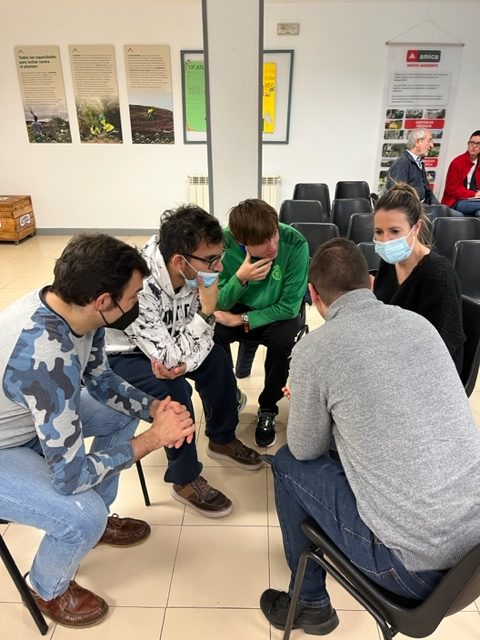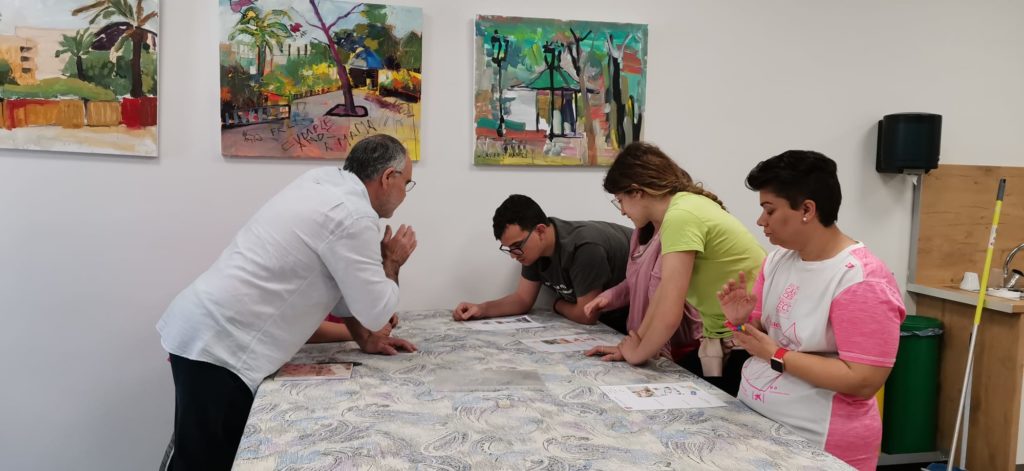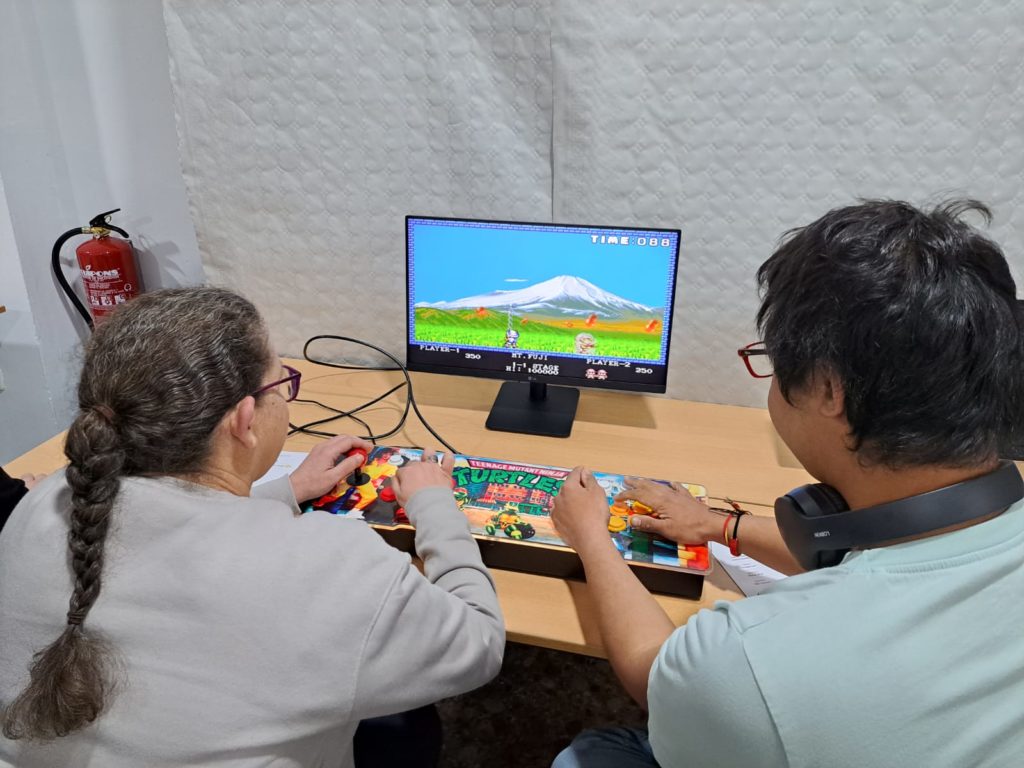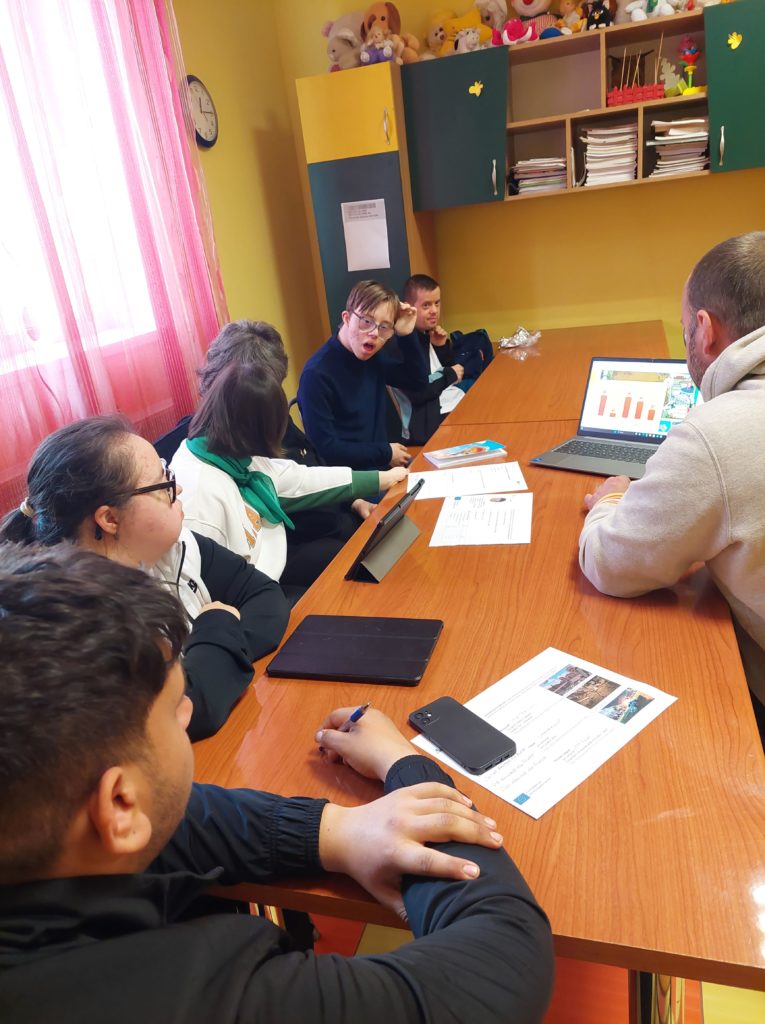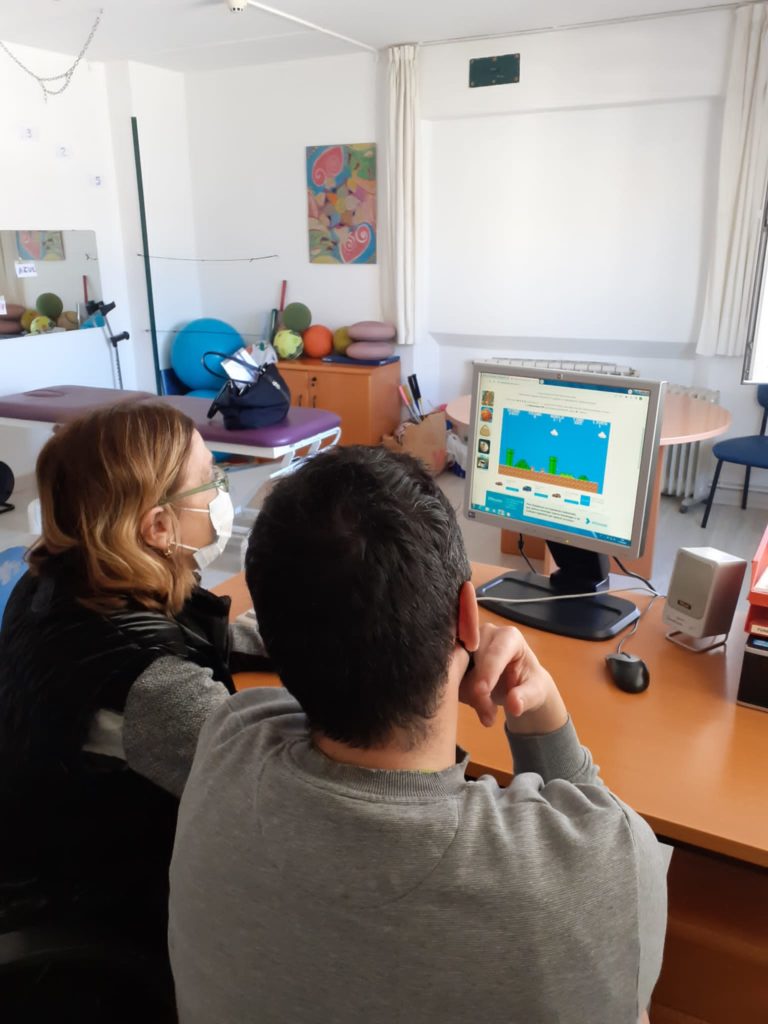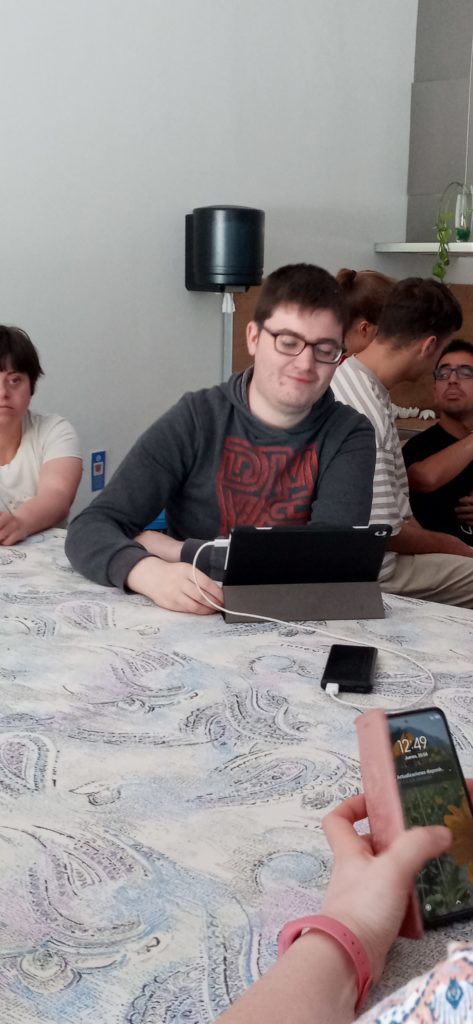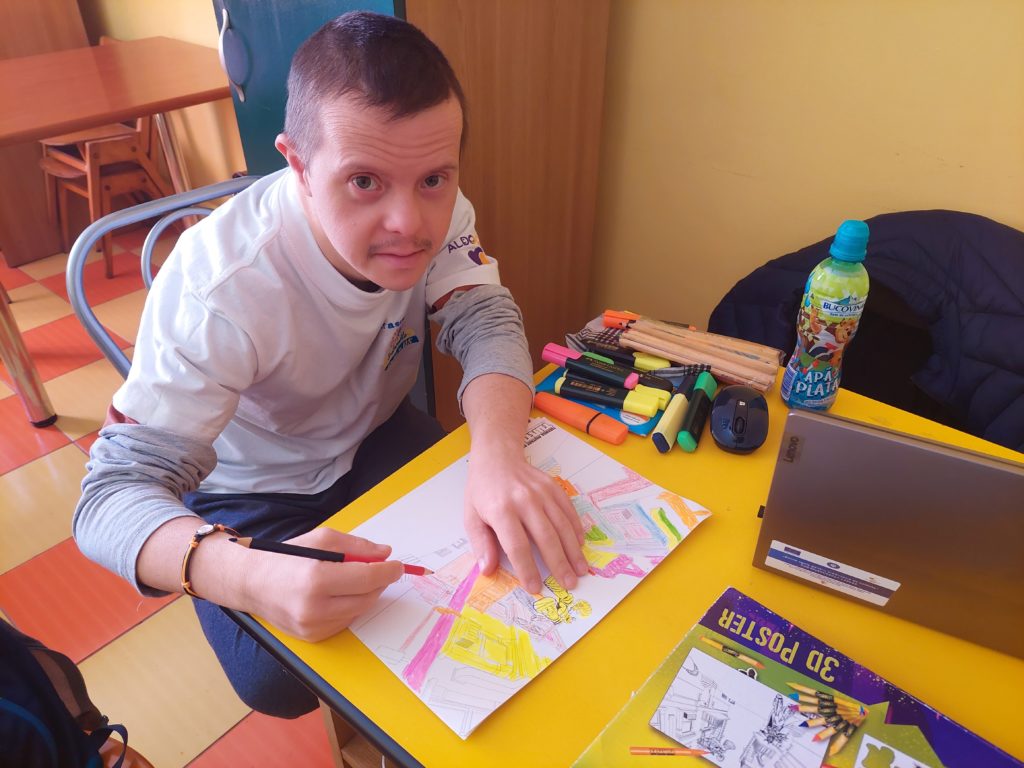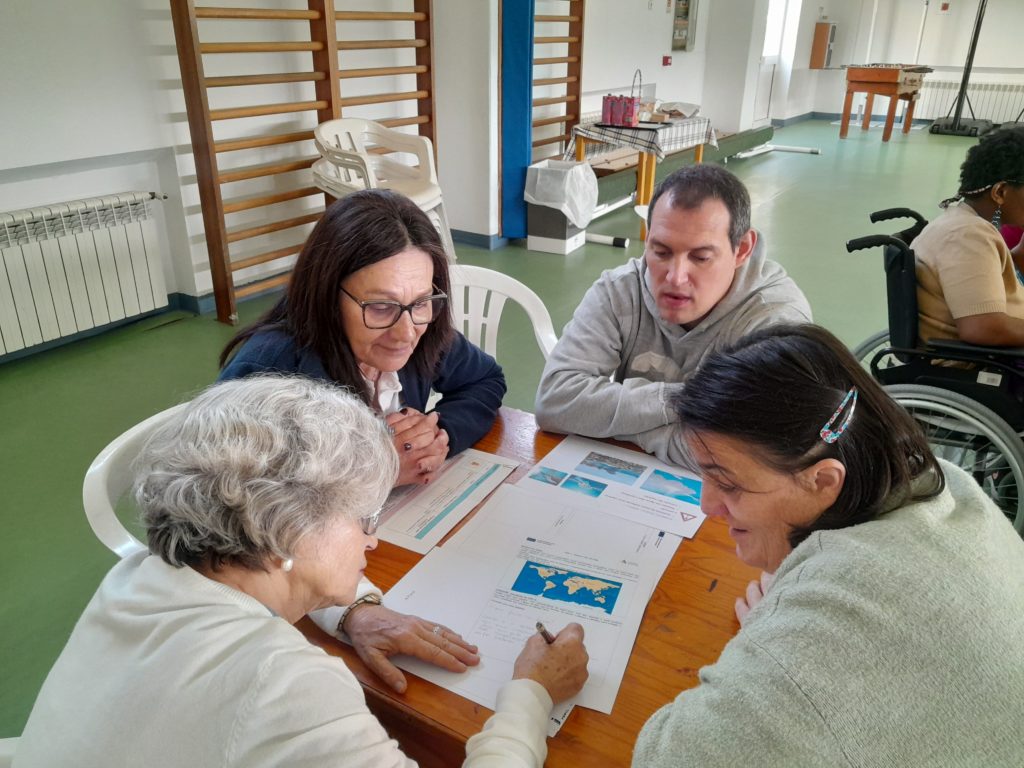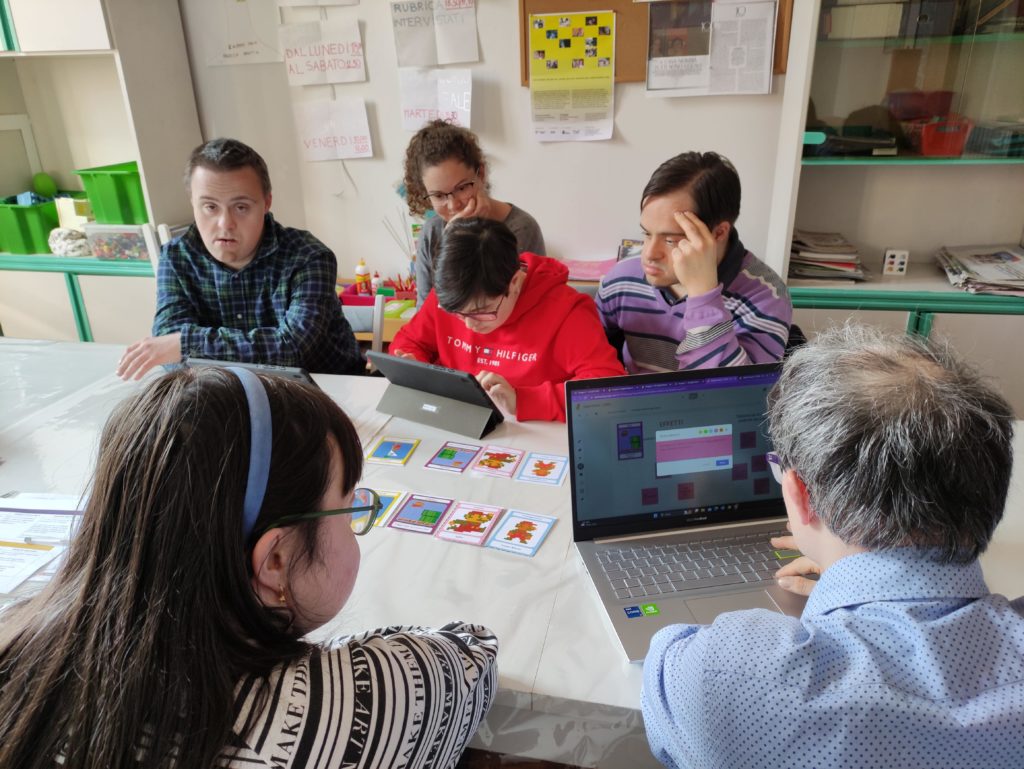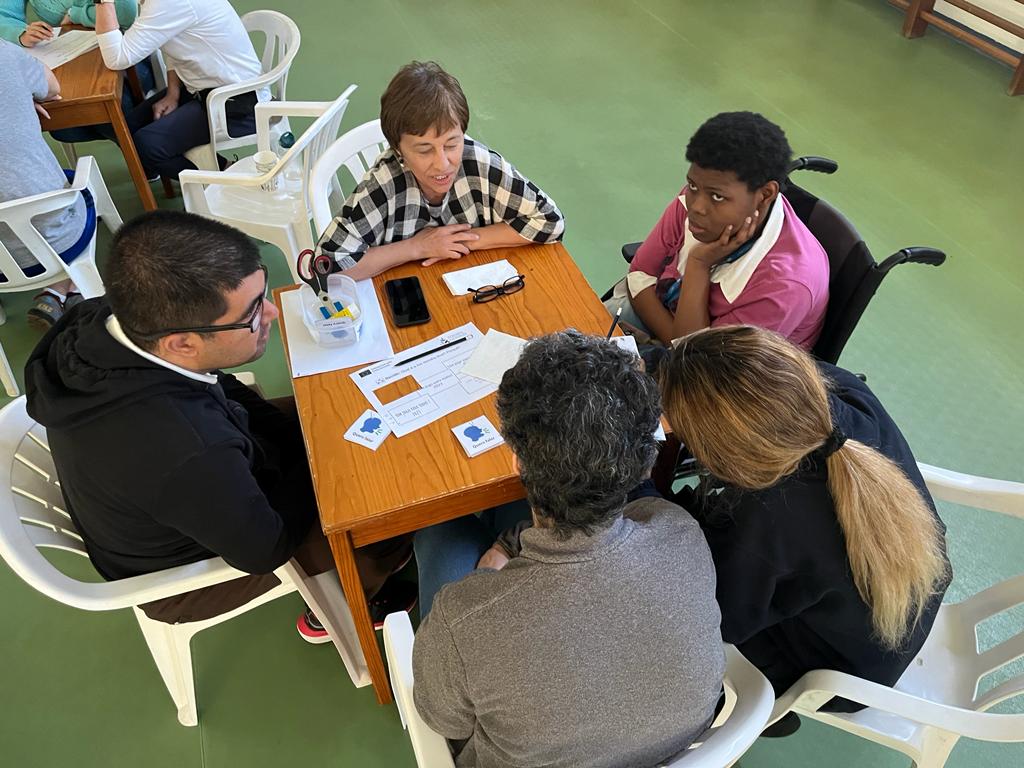
Co-design Sessions
The co-design sessions (CDS) are aimed at directly involving and engaging persons with Intellectual Disability in a cocreation process for the definition of the SGBTM. This implies creating a space to give ideas, experiment and discuss about the different topics touched in the CDS. In this way, we are able to directly involve people with ID (PID) in the creation of the game and give them the opportunity to design something that they actually enjoy and consider relevant for this topic. Each co-design session represented a different step to take, in order to have the initial game project ready to be designed.
Session 1
Characteristics of the sustainability and independent living challenges
Session 2
Collaborative VS. Competitive digital games
Session 3
Narrative, scenario and characters in digital games
Session 4
Rules, dynamics, game progression and gamification elements in digital games
Session 5
Integration of cognitive accessability features in digital games
Session 1
Characteristics of the sustainability and independent living challenges
In this session, we explored how participants with ID relate to sustainability topics, what they know, their ideas and practices. Moreover, we collected information about challenges they face in daily life regarding sustainability practices. It was important to encourage PID to express their opinions and experiences during the activity and collect all their feedbacks through interviews and/or questionnaires.
Session 2
Collaborative vs. Competitive digital games
In this session, we explored how PID relate to digital games and especially if they had a preference between collaborative or competitive digital games.
For this it was important that these concepts were presented to them through a practical and ludic session.
It was important to try different types of games and observe their reactions, encouraging participants to express their ideas and opinions and collect their feedbacks.
Session 3
Narrative, scenario and characters
In this session, we collected information regarding what kind of narrative, scenario, and characters are suitable and appreciated in a digital game by PID.
According to this project, our game will include 2 main scenarios, domiciliary scenario and community scenario with the main theme regarding sustainability and active citizenship. In this frame, we collected feedback from participants regarding aspects of the game scenario that are relevant for their life but also features that make it interesting and fun.
Session 4
Rules, dynamic, game progression and gamification elements
In this session, we explored which game aspects are interesting and suitable for PID. It was important to collect information about rules, dynamics, game progression and gamification elements in digital games that could be a guideline in the game design phase. Participants were active in the definition of elements that compose the game. It was possible to test games in order to see which aspects are the most appreciated.
Session 5
Integration of cognitive accessibility features
In this session, the purpose was to discuss the necessary characteristics that a game must have to be accessible to all people, in particular, to persons with disabilities. To do this, participants were invited to try and experience some digital games and were asked for their comments and opinions related to the features of that game. For example: Do you find the sound pleasant? Are the images clear? Would you need any extra help or instruction?



